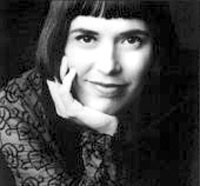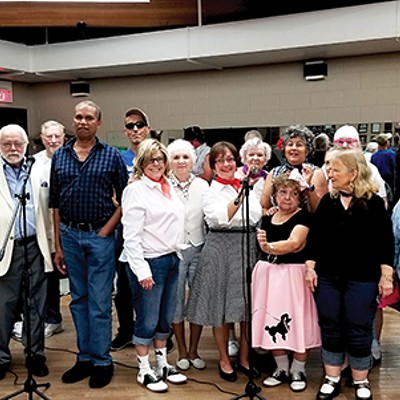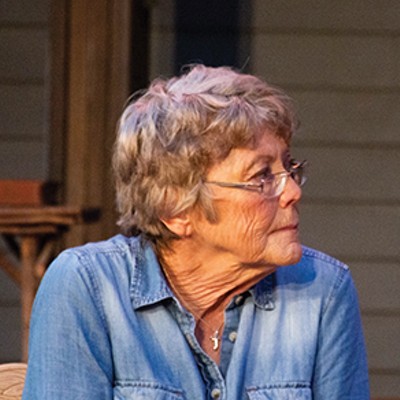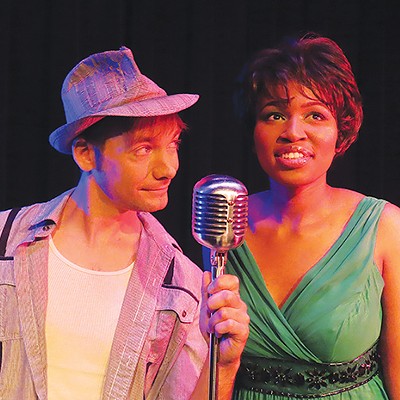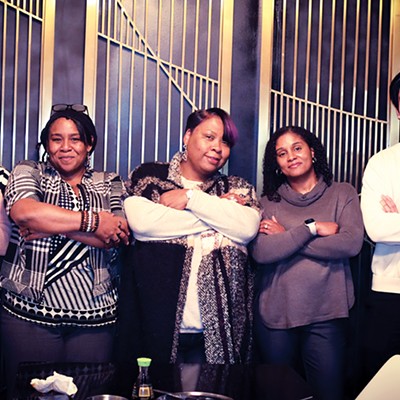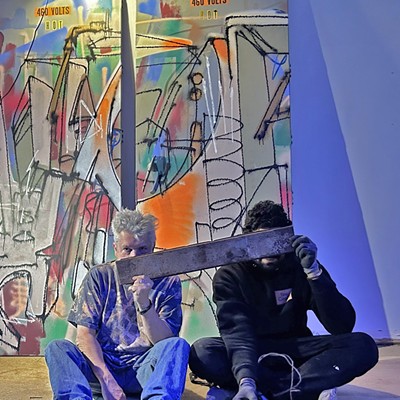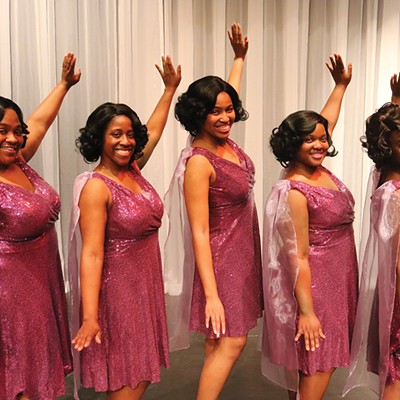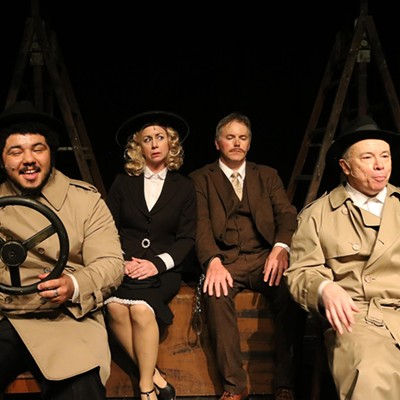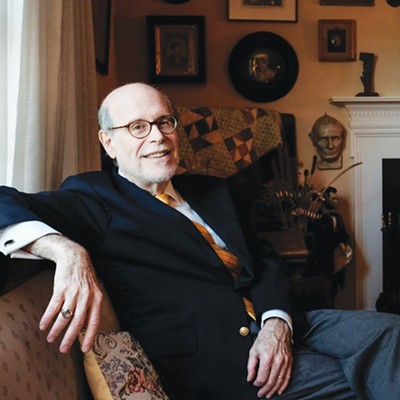Eve Ensler, the 49-year-old author and sometime performer of The Vagina Monologues, is on a pay phone at the Denver International Airport. She's about to board a transpacific flight bound for Melbourne, Australia.
"My head is spinning," she says.
In the six years since The Vagina Monologues opened off-Broadway, the play has turned into an international phenomenon, with, according to Ensler, 1,053 productions in 825 cities and 660 colleges. It's been translated into more than 28 languages. By the time The Vagina Monologues opens at the Sangamon Auditorium this Friday, Ensler will have just completed her Melbourne engagement, "doing the show for 5,000 trade unionists."
The idea for the play came to Ensler in 1994, while she listened to a friend talk about menopause. "It was all very accidental," she recalls. "My friend was a feminist, but she said some disparaging things about her vagina that were very surprising. I started talking to other women. I would casually ask, 'Do you have feelings about your vagina?' and every answer was more surprising than the last. I started interviewing women, lots of women. I didn't plan to write a show about this--I just wanted to know. The subject just seized me in every respect."
She eventually talked to more than 200 women, boiling down their interviews into the dozen monologues that make up the show. The result explores many facets of women's sexuality--from descriptions of terrible relationships to expressions of flat-out ecstasy to declarations of fully realized love.
The arc of the show in many ways mirrors the arc of Ensler's life. Raised in an upper-middle-class home in Scarsdale, New York, she was the middle child of three siblings. When she turned five, Ensler says, she began to be abused by her father. He would fly into rages and beat her with a belt. "I was very sad, very angry, very defiant," she told People magazine in a 2001 profile. "I was the girl with dirty hair. I didn't fit in anywhere."
Writing provided an escape. As a teenager, she kept a journal, obsessively jotting down everything that happened. After graduating in 1975 from Middlebury College in Vermont, she drifted through a series of dysfunctional relationships with men, and she came to depend on drugs and alcohol. She says a chance meeting with a New York City bartender named Richard McDermott saved her life.
With McDermott's support, Ensler went into rehab, sobered up, and focused on her writing. She eventually married McDermott and adopted his son, Mark, encouraging the teenager's interest in acting. (Today Mark McDermott is better known by his stage name, Dylan McDermott, star of the hit TV-show The Practice.) Sadly the marriage didn't last; she got divorced in 1988. (She has been living with Ariel Orr Jordan, an Israeli psychiatrist, since 1990.)
In the mid-80s Mark had introduced Ensler to his theater teacher, actress Joanne Woodward, at New York's Neighborhood Playhouse. Woodward took Ensler under her wing, lending a helpful ear and even directing one of her early plays, The Depot. Ensler remains grateful to Woodward and Woodward's husband, Paul Newman, who provided encouragement while she wrote The Vagina Monologues.
From the moment that play opened at the H.E.R.E. theater in Manhattan, with Ensler performing all of the roles, it became an immediate critical and popular hit. It won an Obie award (the off-Broadway version of the Tony), and it moved to a larger theater, where it continued to sell out.
Exhausted from performing six nights a week, Ensler was eager to get back to writing, so she adapted the show for three actresses. This change proved popular with audiences, because suddenly celebrities were clamoring for a chance to perform in the play. The list of notable actresses appearing in the show reads like a who's who of women entertainers, including Gillian Anderson, Elizabeth Ashley, Oprah Winfrey, and Kate Winslet, to name just a few. (The production coming to Sangamon Auditorium teams New York actresses Gretchen Lee Krich and Joyce Lee with Springfield's own Grace Nanavati.)
Today Ensler divides her time between performing The Vagina Monologues and collecting material for her current project, The Good Body, a show about, in Ensler's words, "All the ways women mutilate their bodies in order to fit into culture: dieting, liposuction, female genital mutilation. We spend an awful lot of time fixing ourselves when we should be running the world."

